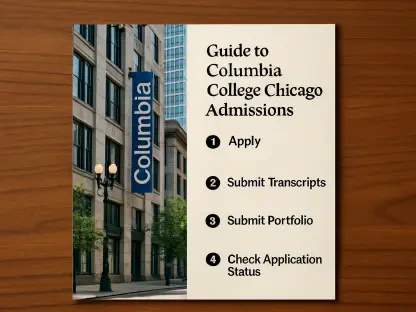Brighton College, a prestigious independent school in Kemp Town, Brighton, faces serious allegations of tampering with the local planning system to win support for its proposed development projects. The school’s planning application, submitted to the Brighton and Hove City Council, outlines its ambitious plan to construct a new teaching block on its St Mary’s Hall site and transform a prep school building off Walpole Road into a boarding house. Following the release of this application on Tuesday, February 11, a deluge of comments poured in, dwarfing typical engagement levels. Among these comments, a startling claim emerged from an anonymous source—allegedly a teacher at Brighton College—accusing the school of coercing its staff into submitting favorable feedback under the guise of local residents.
Allegations of Coercion
The anonymous teacher’s accusation suggested that the headmaster of Brighton College instructed teachers to pose as local residents or individuals working in Kemp Town and provided specific favorable remarks for them to submit. This alleged coercion, the accuser claimed, was part of a calculated move to flood the council’s website with supportive comments. The data purportedly show that around 150 comments appeared on Monday, March 3, with about 70 more the following day, raising suspicions about the organic nature of the feedback.
The anonymous comment detailed a significant concern about the potential impacts of the proposed developments, particularly the temporary relocation of prep school pupils to the main college campus during construction. This transfer could dramatically increase traffic levels due to daily drop-offs and pick-ups, possibly affecting residents’ quality of life. The planning application’s receipt of more than 300 comments—with 232 in favor and only 86 objections—against this backdrop of alleged coercion underscores questions about the authenticity and integrity of the support.
Brighton College’s Defense
In the face of these serious allegations, Brighton College has staunchly defended its actions. The school described itself as a crucial local enterprise, employing 700 individuals and providing substantial business for numerous local shops, cafés, and other establishments. According to Brighton College, it simply informed its staff and local community members about how they could participate in the planning process and voice their support if they so wished. The institution emphasized that its efforts were entirely above board and aimed at engaging the community transparently.
Further bolstering its defense, Brighton College highlighted the design and investment value of the proposed projects. The school asserted that these developments would address the pressing demand for additional boarding accommodations—a need that has previously led to dismissed appeals for using residential housing stock for the same purpose. Additionally, Brighton College noted that it is a not-for-profit entity, redistributing all revenues from tuition-paying parents back into the school and the local economy. The institution stressed that its developments had garnered support from Historic England, adding historical and cultural weight to its arguments.
Community and Council Responses
The planning application has been a lightning rod for community reaction, garnering over 300 comments that reflect a broad spectrum of opinions. While a majority of the comments appeared to support the application, objectors raised significant concerns. Chief among these were fears over increased traffic congestion resulting from relocating prep school pupils to the main campus, which would inevitably ramp up daily drop-offs and pick-ups. Opponents also voiced issues regarding the scale of the development, including the lack of open areas and potential infringements on residential privacy.
Local representatives have echoed these concerns, with several councillors formally objecting to Brighton College’s plans. Labour councillor Liz Loughran, who chairs the council’s Planning Committee, stated that the council generally does not comment on specific planning applications unless significant issues such as fraud arise. She reiterated that planning decisions are made based on the validity of the concerns raised rather than the identity of those expressing them, highlighting the principle of good faith in the process as crucial. Labour councillors Tristram Burden and Gary Wilkinson also raised objections, warning of overdevelopment and its impact on local infrastructure.
Data Protection Controversy
The council’s approach to handling public comments on the planning application has sparked additional controversy. In line with data protection policies, the council redacted names and addresses from its website. However, this practice has drawn criticism, with detractors asserting that it undermines transparency and accountability. They argue that knowing the identity of commenters is crucial for assessing the genuineness of the feedback—especially in the context of allegations of staff coercion.
Additionally, the objection comments from three ward councillors, including Labour councillor Gill Williams representing Whitehawk and Marina ward, were anonymized. Critics question whether this level of opacity serves public interest. The council defended its redaction practice, citing data protection laws and the necessity of safeguarding personal information. Nonetheless, the criticism has cast a shadow over the council’s handling of the planning process, feeding into wider concerns about procedural integrity.
Varied Reactions and Broader Implications
The reactions to Brighton College’s development plans encapsulate a wide array of perspectives, reflecting the complexity of the issue at hand. Supporters of the expansion emphasize the clear benefits of modernized facilities and increased capacity, often framing the projects as a boon for both the school and the local economy. They argue that the new teaching block and boarding house will offer enhanced educational opportunities and attract more students from diverse backgrounds, thereby enriching the community.
In stark contrast, opponents highlight the possible negative repercussions of the projects. These include increased traffic congestion, especially in narrow residential streets, and the erosion of residents’ privacy due to the proximity of new buildings. Concerns extend to broader issues, such as overdevelopment and its impact on the local community’s dynamic, infrastructure, and environment. The vigorous debate surrounding the planning application reveals deeper tensions between institutional growth and the well-being of local residents.
A Complex Controversy
The anonymous teacher accused the headmaster of Brighton College of instructing teachers to pose as local residents or workers in Kemp Town and write specific favorable remarks for submission. This alleged coercion was claimed to be a calculated strategy to inundate the council’s website with supportive comments. Data supposedly shows that around 150 comments emerged on Monday, March 3, with about 70 more the subsequent day, casting doubt on the organic nature of the feedback.
The anonymous comment highlighted significant concerns about the proposed developments, particularly the temporary move of prep school pupils to the main college campus during construction. This transfer could lead to a notable increase in traffic due to daily drop-offs and pick-ups, potentially affecting the quality of life for residents. The planning application received over 300 comments—232 supportive and only 86 opposed—casting further doubt on the authenticity and integrity of the support given the alleged coercion.









